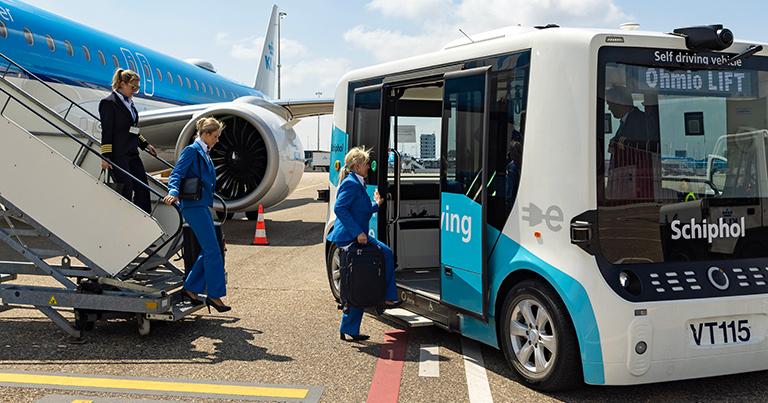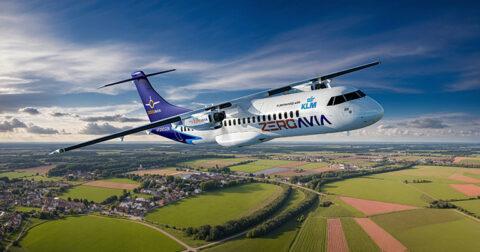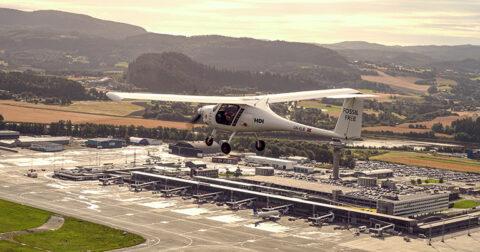
Schiphol Group – a Corporate Partner of the FTE Digital, Innovation & Startup Hub – has started the second phase trial of electric self-driving buses together with KLM Cityhopper and KLM Ground services. They are testing a fixed, pre-programmed route to and from the apron. Crew from KLM Cityhopper arriving at Schiphol can use the shuttle service. Earlier this year, Schiphol conducted a successful initial trial of these self-driving buses from supplier Ohmio.
During the first phase of the trial, the focus was on testing technical features and ease of use. The current phase will take place at the apron, an even more complex setting where there is always a lot of simultaneous activity, ranging from aircraft arriving and departing to flight handling operations and airline crew transport.
“It’s great that we’ve been able to follow up on the trial with the self-driving buses so soon,” said Jan Zekveld, Head of Innovation, Royal Schiphol Group. “We’re curious about the insights we’ll gain at this location, particularly because punctuality and safety are crucial on this route. We’re also curious how airline crew members experience self-driving transport. This will help to build trust in the technology and potentially facilitates future integration of other self-driving vehicles.”
The bus will fetch KLM Cityhopper crew from Apron A, where KLM Cityhopper aircraft park before departure and on arrival at Schiphol. The self-driving bus then drops off the flight crew at the terminal. The vehicle is equipped with sensors and special cameras and makes use of GPS to manoeuvre. The bus has a 360-degree view because it is equipped with LIDAR technology. This allows the vehicle to detect and move around objects located up to 30m away.
“I’m very enthusiastic about this trial and think it’s great that our crew can test this innovative, self-driving bus,” said Maarten Koopmans, Managing Director, KLM Cityhopper. “KLC has always set the trend in implementing the latest technologies and this innovation also fits in perfectly with KLM’s aim to achieve emission-free ground handling by 2030.”
By 2050, Royal Schiphol Group aims to operate the most sustainable and high-quality airports in the world. Part of the plan involves achieving more sustainable and emission-free ground operations. Royal Schiphol Group expects that by 2050 all vehicles will have been replaced by a fleet of autonomous, zero-emission vehicles and that all associated processes will be automated. Even when ground operations are autonomous, staff will continue to play an important role, taking on a more supervisory role, involving varied tasks.








